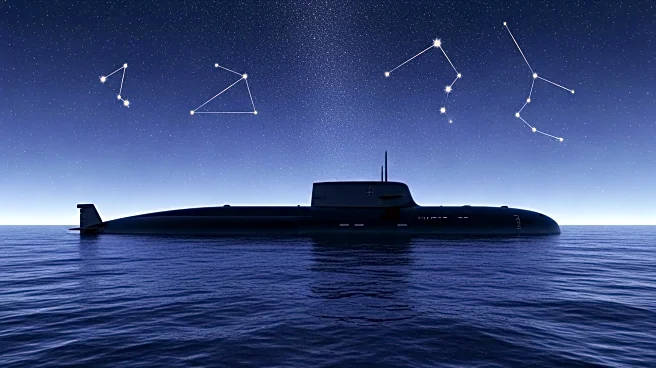What is the story about?
What's Happening?
NATO officials have reported a noticeable decrease in Russia's naval presence in the Mediterranean Sea, attributing this to readiness issues and increased focus on the Baltic Sea and High North regions. Historically, Russia maintained a significant naval task force in the Mediterranean, especially during heightened tensions in Syria in 2018. However, recent assessments indicate a reduction in Russian maritime assets in the area. The loss of Russia's strategic port in Tartus, Syria, and NATO's strengthened presence in the Baltic and High North are cited as contributing factors. The closure of the Tartus port, a key refueling and repair facility, has impacted Russia's operational capabilities, forcing longer travel distances for its naval forces.
Why It's Important?
The reduction in Russian naval presence in the Mediterranean has significant implications for regional security dynamics. NATO's bolstered presence in the Baltic and High North regions suggests a strategic shift in focus, potentially altering the balance of power in these areas. The loss of the Tartus port limits Russia's ability to sustain operations in the Mediterranean, affecting its strategic reach and influence. This development may lead to increased NATO activities and collaborations in the region, enhancing security measures and surveillance capabilities. The situation underscores the importance of strategic ports and alliances in maintaining naval power and influence.
What's Next?
As NATO continues to monitor Russian naval activities, further strategic adjustments may be anticipated. The alliance's Baltic Sentry mission aims to protect critical underwater infrastructure and enhance sea surveillance, potentially prompting Russia to allocate more resources to safeguard its interests in the Baltic Sea. The ongoing developments may lead to increased diplomatic engagements and military collaborations among NATO member states to address emerging security challenges. Additionally, Russia may seek alternative strategies to compensate for the loss of the Tartus port, possibly exploring new alliances or enhancing its naval capabilities in other regions.
Beyond the Headlines
The decline in Russian naval presence in the Mediterranean highlights broader geopolitical shifts and the strategic importance of naval bases. The situation raises questions about the long-term implications for Russian naval strategy and its ability to project power in key regions. The closure of the Tartus port may prompt Russia to reassess its naval priorities and explore new partnerships or technological advancements to maintain its influence. The development also underscores the role of international alliances and strategic collaborations in shaping regional security landscapes.















